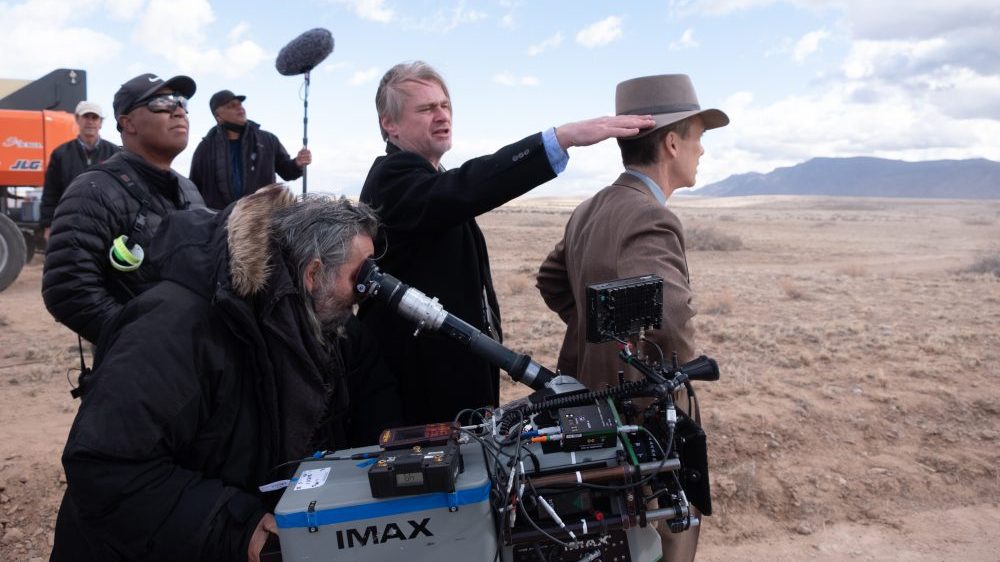
In 2020’s “Tenet,” Christopher Nolan blew up a 747, and for his latest feature, “Oppenheimer,” he recreated the Trinity Test without using visual effects, opting to find a way to do it in-camera instead.
“Obviously, we couldn’t make an explosion the size of the actual explosion so we used trickery,” cinematographer Hoyte van Hoytema explains, and no, they didn’t detonate a real atomic bomb.
The ten-minute sequence capturing the first-ever successful atomic bomb detonation came together through many experiments. It was a given that Nolan would do the scene in-camera. “We’re suckers for this absolute depth of resolution that IMAX give us,” van Hoytema says. “But when you go to VFX, you have to scan it, and the moment you do that, it loses half of its resolution.”
Their goal was to preserve the quality of the film stock.
Despite not using VFX, Nolan and van Hoytema worked closely with special effects supervisor Scott Fisher and visual effects supervisor Andrew Jackson on a number of experiments to see how the scene could play out.
Van Hoytema says, “We created science experiments. We built aquariums with power in it. We dropped silver particles in it. We had molded metallic balloons which were lit up from the inside. We had things slamming and smashing into one another such as ping-pong balls, or just had objects spinning.”
“We had long shutter speeds, short shutter speeds, wide negative color, negative overexposure, underexposure. It was like a giant playground for all of us,” the D.P. recalls.
How van Hoytema and the team actually pulled off the jaw-droppingly spectacular moment remains a mystery. With each experiment, Nolan and van Hoytema would look at how the combination came across on screen.
“The Trinty Test was something that came together and was cobbled from the miniatures of that science experiment, under the guidance of Chris and my guidance, that we pushed slowly in certain directions in order to serve specific functions in these sequences,” is all he can say.
In total, the sequence took several weeks to film. Van Hoytema explains, “The build-up was fragmented. There’s a lot of cross-cutting and people doing different things before it culminates.” He adds, “It’s this immense group of people from all over the country who put their heads’ energy together, and under the guidance of Oppenheimer lead this project into that final bang.”
Known for his widescreen vista shots, van Hoytema says his assignment this time was to capture the intimacy, since the story was being told from Oppenheimer’s point of view. Van Hoytema explains, “It was very much about what was going on inside his head, what he’s thinking and what we can read in his eyes, so we really needed to be there with him and progress that throughout the story.”
However, there was another story threaded into “Oppenheimer,” that of the confirmation hearings of Lewis Strauss, played by Robert Downey Jr., and that was where Nolan and Hoytema chose to integrate black and white. “It was a way to separate Strauss’ experience away from the color stuff,” the D.P. says.
But black and white IMAX stock in 70mm did not exist. The cinematographer went to Kodak and asked if the film supplier could manufacture the stock. Van Hoytema says, “They came out with test rolls for us to run through our camera. We had to re-engineer our cameras a little bit, and we had to remake our pressure plates and our backend lab work needed to be readjusted.” He adds that what he thought was going to be very simple became a “big engineering feat of a work pipeline from pre-production to production and then on to post.”
Says Hoytema, “I do remember when Chris and I were sitting in the cinema and watching the results of our first black and white test and it was just freaking amazing. We had never seen anything like it.”













